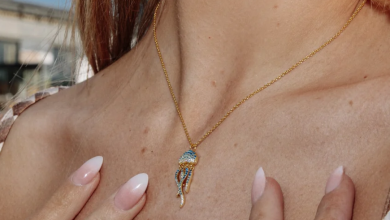Do Female Rabbits Menstruate? Unveiling the Rabbit’s Cycle
Myth Regarding Female Rabbit

The world of rabbit reproduction is a fascinating and sometimes misunderstood one. Many rabbit owners have wondered whether female rabbits, known as does, have menstrual cycles similar to humans. The truth is that rabbits have unique reproductive systems that differ significantly from those of humans. In this article, we will explore the intricacies of rabbit reproduction and unveil the mysteries surrounding the question: Do Rabbits Have Periods?
Rabbit Reproductive System: How It Differs from Humans
Before delving into whether female rabbits menstruate, it’s essential to understand the fundamental differences between human and rabbit reproductive systems.
Humans, as well as some other mammals, have menstrual cycles. Menstruation is the process of shedding the uterine lining if fertilization of an egg does not occur. This results in the discharge of blood and tissue through the vagina.
Rabbits, on the other hand, do not have menstrual cycles. Instead, they possess a unique reproductive system known as induced ovulation. This means that ovulation in female rabbits is triggered by specific events, such as mating or the presence of a male rabbit, rather than occurring on a regular cycle.
The Estrous Cycle in Female Rabbits
The estrous cycle, also known as the reproductive cycle, is the key to understanding how female rabbits reproduce. This cycle involves several distinct phases:
- Proestrus: During this initial phase, the female rabbit begins to display receptive behavior towards males. However, ovulation has not yet occurred.
- Estrus: This is the fertile phase of the estrous cycle. The female is willing to mate, and if a successful mating occurs, it triggers ovulation.
- Metestrus: This is a transitional phase following mating, and the female is less receptive to males. If fertilization has occurred, it will lead to pregnancy.
- Diestrus: In the absence of pregnancy, the female rabbit returns to a non-receptive state.
Unlike human menstrual cycles, the estrous cycle of a female rabbit does not involve the shedding of a uterine lining or the discharge of blood. In other words, female rabbits do not menstruate.
Ovulation in Female Rabbits: A Unique Mechanism
One of the most intriguing aspects of rabbit reproduction is the mechanism of ovulation. Female rabbits are induced ovulators, which means that ovulation is triggered by mating. When a female rabbit mates, the physical stimulation from the male rabbit leads to the release of eggs from her ovaries.
This unique reproductive adaptation has evolved as a response to the mating habits of rabbits. In the wild, where rabbits are prey animals, it’s essential for them to ensure a high likelihood of successful reproduction during brief, infrequent encounters with potential mates. Induced ovulation maximizes the chances of fertilization when mating occurs.
The Role of Pheromones and Scent in Rabbit Reproduction
Rabbits rely heavily on scent and pheromones in their reproductive behaviors. Female rabbits emit specific scents and pheromones during estrus, indicating their receptiveness to males. This scent signals to male rabbits that it’s an opportune time to mate. In response, males may compete for the female’s attention, resulting in behaviors like circling and mounting.
These scent-based communication methods play a crucial role in the successful initiation of the rabbit’s estrous cycle and ultimately lead to ovulation.
The Importance of Mating in Female Rabbit Reproduction
For female rabbits, mating is not just about reproduction; it’s also about triggering their reproductive cycle. Without mating or the presence of a male, female rabbits may not undergo ovulation. This means that if you want to breed your rabbits, ensuring that they are in the presence of a compatible mate is essential to initiate the estrous cycle.
The Role of Pregnancy and False Pregnancies
If fertilization occurs during the estrous cycle, a female rabbit will enter pregnancy. Pregnancy in rabbits typically lasts around 28 to 31 days. However, it’s important to note that rabbits can also experience false pregnancies, where they exhibit behaviors and physical changes consistent with pregnancy, even when they are not pregnant.
Conclusion
In summary, female rabbits do not menstruate in the way humans do. Their reproductive system is characterized by induced ovulation, where ovulation is triggered by mating or the presence of a male. Understanding the unique nature of rabbit reproduction is essential for rabbit owners and breeders, as it informs how to manage their care and breeding. While female rabbits may not have menstrual cycles, they have their own fascinating and distinctive reproductive processes that contribute to the perpetuation of their species.



